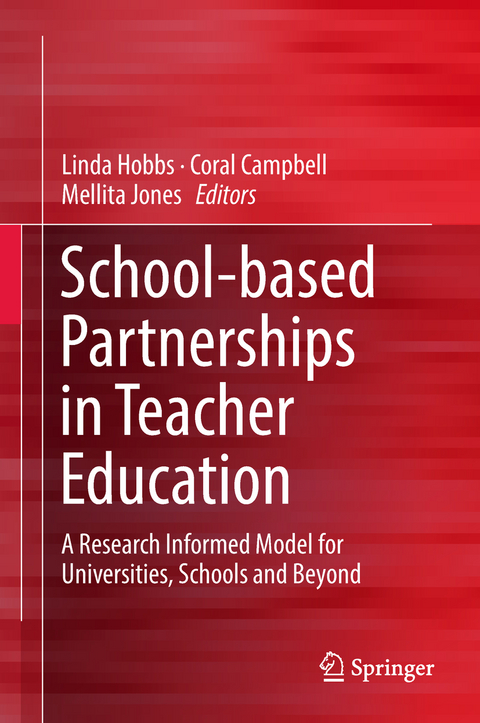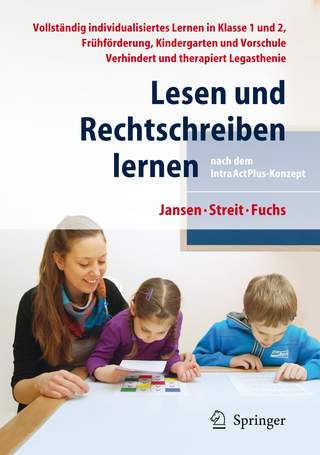
School-based Partnerships in Teacher Education
Springer Verlag, Singapore
978-981-13-1794-1 (ISBN)
While the STEPS project focused on partnerships in primary science teacher education, a key strength of the partnership model (the STEPS Interpretive Framework) developed and explored in this book is its applicability for cross-case, national, international, and inter-state analyses of partnership practices. This is shown through a number of case studies where the STEPS Interpretive Framework is applied and evaluated in the context of other school- or learning-related partnerships. These broad-ranging analyses illustrate the relevance of the model to a range of settings, both within and outside of education.
Linda Hobbs is an Associate Professor in Science Education at Deakin University. She teaches primary science education in the Bachelor of Education Course, and coordinates a fourth year science education unit that is solely based in schools. She also teaches science communication to science and engineering students. Her research interests include partnerships in primary teacher education, out-of-field teaching in secondary schools, and STEM education. She was the leader the Science Teacher Education Partnerships with Schools (STEPS) Project (2013-2014, funded by the Office for Learning and Teaching). Coral Campbell is an Associate Professor at the School of Education, Deakin University, Australia. Coral’s research interests are in early childhood and primary science, design technology, and environmental education, and particularly focuses on practitioner learning and children’s understandings. She is on review panels for several international journals and is currently involved in a number of large federally funded projects. Coral has contributed to, and co-edited, the first Australian text for pre-service early childhood educators, Science in Early Childhood (Cambridge University Press). Mellita Jones is a lecturer at Australian Catholic University’s Ballarat campus where she teaches Science Teacher Education and is the Deputy Head of School for the Ballarat campus. Her research is concerned with effective teacher education, where her focus has been on school-university partnerships, reflective practice and authentic uses of technology for personalising learning. Her recent work has involved school-based approaches to science teacher education and practicum partnerships for rural and regional teacher education courses. She also has an interest in working with teachers in the Pacific region and has had significant involvement in the Solomon Islands.
Part 1 Framing the STEPS Project Partnership Theory and Practice.- 1 Theory and practice: The context of partnerships in teacher education.- 2 Science Teacher Education Partnerships with Schools (STEPS).- 3 Models of School-based practice: Partnerships in Practice.- Part 2 STEPS Interpretive Framework as a partnership model.- 4 Linking theory and practice through partnerships.- 5 Representing Partnerships Practices.- 6 Growing University-School Partnerships.- 7 A Partnership Journey Narrative: The case of Damtru, Science Teacher Educator.- 8 Growing through partnerships.- 9 Sustaining School-University Partnerships: Threats, Challenges and Critical Success Factors.- Part 3 Application of the partnership model in other contexts.- 10 Teacher Education at Trinity University meets the STEPS Interpretive Framework.- 11 A New Zealand collaborative university-school partnership: Applying the STEPS framework.- 12 The case of the Catholic Teacher Education Consortium: Using the STEPS frameworkto analyse a school-university partnership.- 13 Negotiating partnerships in a STEM teacher professional development program: Applying the STEPS Interpretive Framework.- 14 Scientists and Mathematicians in Schools: CSIRO, Australia.- 15 Case studies exploring the applicability of the STEPS Interpretive Framework in other Professions.- 16 Visionary practice.
| Erscheinungsdatum | 18.09.2018 |
|---|---|
| Zusatzinfo | 14 Illustrations, black and white; XIX, 285 p. 14 illus. |
| Verlagsort | Singapore |
| Sprache | englisch |
| Maße | 155 x 235 mm |
| Themenwelt | Geisteswissenschaften ► Psychologie ► Pädagogische Psychologie |
| Sozialwissenschaften ► Pädagogik ► Berufspädagogik | |
| Sozialwissenschaften ► Pädagogik ► Bildungstheorie | |
| ISBN-10 | 981-13-1794-1 / 9811317941 |
| ISBN-13 | 978-981-13-1794-1 / 9789811317941 |
| Zustand | Neuware |
| Informationen gemäß Produktsicherheitsverordnung (GPSR) | |
| Haben Sie eine Frage zum Produkt? |
aus dem Bereich


